Croatia Records Jugoton Funk Reveals Hrvatska's Heaviest Grooves
ZAGREB October 23, 2020 - Preserved by Zagreb's Croatia Records, the vast archive of giant Yugoslavian music label Jugoton throws up some incredible surprises on the newly released Croatia Records Jugoton Funk Vol. 1
James Brown, Funkadelic, Sly & The Family Stone, Fela Kuti - when you think of funk music, it's black artists that usually come to mind. Although, not if you're Croatian. One of the country's best-loved (and most missed) musicians, Dino Dvornik, was often referred to as the King Of Croatian Funk - his electro explorations in the genre during the early 90s were so innovative they don't sound out of place on dancefloors today. But, though he here might be known as the king of this style, Dino Dvornik was far from the first to record funk music in Croatia.
Marijan Kašaj - Ideja
One of the highlights of Croatia Records Jugoton Funk Vol. 1. Although a classically trained opera singer, Zagreb's Marijan Kašaj expressed a much more rough vocal style when singing rock music, notably as the frontman of the band Grešnici (The Sinners). This song comes only from a rare 45 single and was composed and arranged by Vladimir Delač
The recently released Croatia Records Jugoton Funk Vol. 1 compilation finally lifts the lid on the largely untold history of homegrown Croatian funk music. Culled from the darkest depths of the gargantuan Croatia Records Jugoton archive in Dubrava, this collection tells a story of ambitious musicians joyfully creating some of the wildest sounds to have ever come from these lands. Effortlessly cool and in many cases very surprising, it is a soundtrack that is perhaps even more relevant on today's world stage than when it was made.
Dalibor Brun - Davni život
Rijeka musician Dalibor Brun explored soul and funk music across three solo albums. This track, from his third, features a wild Hammond solo performed by extremely famous Croatian singer and songwriter Oliver Dragojević. “You can hear some funky tracks in Oliver's own back catalogue, but to find him playing such a wild style as a session musician on Dalibor Brun's track is a very unexpected,” says Dr. Smeđi Šećer. “At the time of these recordings, some of these artists were already well established, so they could afford to collaborate and experiment as they wished.”
“Most of Jugoton's output was pop and folk music,” Croatia Records Jugoton Funk Vol. 1's Dr. Smeđi Šećer tells TCN. Alongside co-compiler, Zagreb's Višeslav Laboš, this Rijeka DJ is part of a small scene of enthusiasts who have been reviving the ex-Yu funk sound over recent years - online, on mixtapes and at niche club nights. “These are mostly very obscure releases. You would have to go looking around secondhand record shops for maybe 10 years to find all of these.”
Igor Savin - Alfa
Son of prominent Croatian conductor, composer and opera director Dragutin Savin (longtime director of the Osijek Opera), Igor Savin is a pianist, vibraphonist, composer, arranger and producer who studied at the Theoretical Department of the Academy of Music in Zagreb. He continued his studies by one of the first Croatian students at the prestigious American College of Contemporary Music Industry Berklee College of Music in Boston where he studied harmony, improvisation and composition. As an eighteen-year-old, he founded his first jazz band. He played piano and vibraphone in symphony, studio and festival orchestras, and in the Big Band of HRT. He is the author of music for numerous films, cartoons, television shows, theatre plays and often used melodies from Balkan folk music to inspire his jazz and contemporary classical pieces. In 1984, he founded the electronic studio of the Vatroslav Lisinski Concert Hall.
Time spent rifling through secondhand shops for old, forgotten and obscure music is a pastime known as digging. A phenomenon popularised since the birth of American hip hop in the 1980s, it has been responsible for turning the music of the past into some of the most-contemporary sounds we hear on today's radio or dancefloors. Over the last four decades, countless soul, R&B and hip hop stars have sampled older music to create chart-topping hits. Digging for vintage sounds has subsequently become a global trade. Obsessives Dr. Smeđi Šećer and Višeslav Laboš are two of the best-informed that search for contemporary-relevant sounds in the back catalogues of Balkan music.
Josipa Lisac - Ležaj od suza
'Ležaj od suza' (A bed of tears) is taken from Croatian megastar Josipa Lisac's classic debut LP 'Dnevnik jedne ljubavi'. It is not the only track on the album which you can hear international funk DJs play in some of the coolest clubs in London, Berlin, Manchester and New York. She is backed here by Jugoton's first prog-rock band, Time, plus the strings and horns section of the HRT Orchestra. The iconic cover art of Lisac's debut album was a photograph taken by Croatian photographer Jozo Ćetković, who also took the photograph of Croatian model Branka Habek which is used to form the cover art of Croatia Records Jugoton Funk Vol. 1
For Croatia Records Jugoton Funk Vol. 1, they've been greatly assisted in their endeavors by Zagreb's Croatia Records. Not always regarded as the hippest supplier of niche sounds like forgotten funk, Croatia Records's careful preservation of the Jugoton back catalogue (which they inherited after the break-up of Yugoslavia), has meant that the entire recorded history of the giant Yugoslav label has been made available not only to album compilers like Smeđi Šećer and Višeslav Laboš, but to all. Over recent years, Croatia Records has embarked on an ambitious project to digitalise the entire Jugoton archive. Containing some 70, 000 music recordings and 14, 000 artifacts, this is no small undertaking.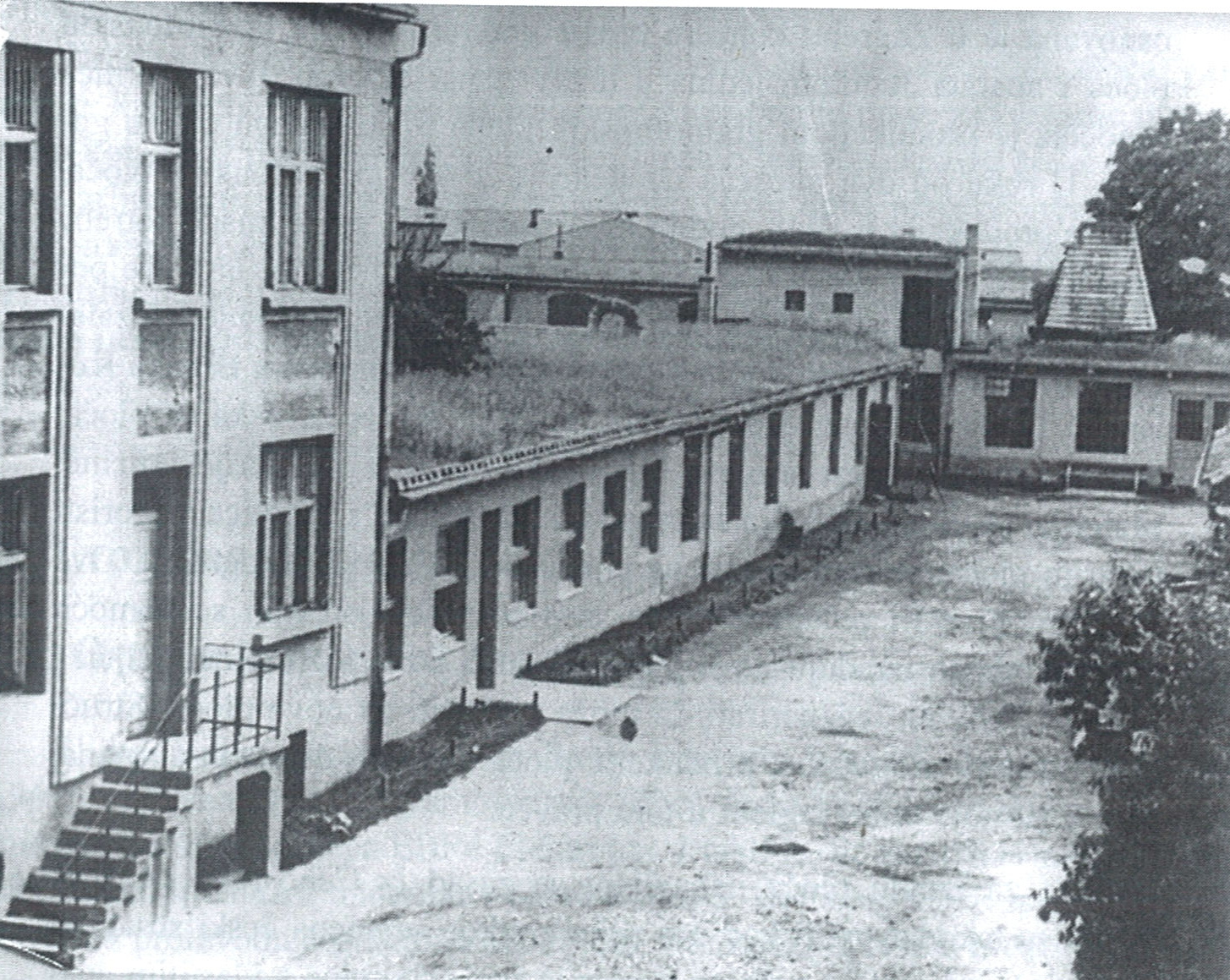 The first Jugoton Records HQ, located at Ilica 213, Zagreb. It subsequently moved to Dubrava, on the site where Croatia Records remains today © Photos from the book History of Vinyl Production in Croatia by Veljko Lipovšćak - provided by Croatia Records
The first Jugoton Records HQ, located at Ilica 213, Zagreb. It subsequently moved to Dubrava, on the site where Croatia Records remains today © Photos from the book History of Vinyl Production in Croatia by Veljko Lipovšćak - provided by Croatia Records
Of all the companies that issued music in the former Yugoslavia, Jugoton was the largest. Based in Dubrava, Zagreb, Jugoton was much more than the type of record label we know today - theirs was an entire industry of culture. Jugoton traces its roots all the way back to the 1930s when it began life as the Elektroton label. After the Second World War, the label was nationalized and renamed Jugoton.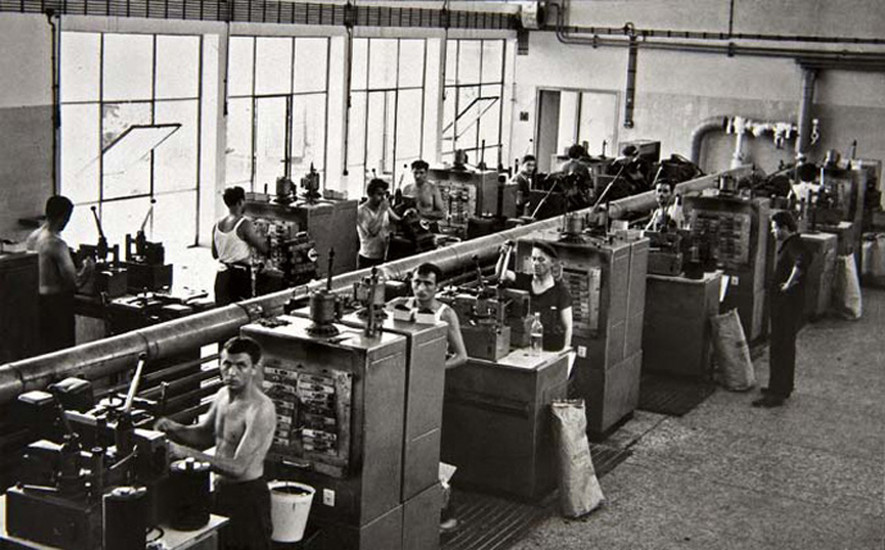
 In the two photos above, we can see the Jugoton vinyl pressing factory at two different stages of its evolution © Photos from the book History of Vinyl Production in Croatia by Veljko Lipovšćak - provided by Croatia Records
In the two photos above, we can see the Jugoton vinyl pressing factory at two different stages of its evolution © Photos from the book History of Vinyl Production in Croatia by Veljko Lipovšćak - provided by Croatia Records The hydraulic semi-automatic vinyl pressing machine 'Litostroj' at the Jugoton pressing plant 1967 - 1979 © From the book History of Vinyl Production in Croatia by Veljko Lipovšćak - provided by Croatia Records
The hydraulic semi-automatic vinyl pressing machine 'Litostroj' at the Jugoton pressing plant 1967 - 1979 © From the book History of Vinyl Production in Croatia by Veljko Lipovšćak - provided by Croatia Records
At the peak of its influence, Zagreb's Jugoton did more than just sign artists and release music. On the Dubrava site where Croatia Records now stands was a then ultra-modern production studio where famous artists from all over Yugoslavia would come and record. Jugoton made its own discs – at its peak, Jugoton's pressing plant churned out 30, 000 vinyl records every day. By 1982, its decade-old cassette production line made 20,000 units per day. They also owned the largest chain of music stores within the country. As well as the domestic artists signed to Jugoton, the label licensed and released music by some of the biggest artists of the day, including Elvis Presley, The Beatles, The Rolling Stones, Deep Purple and Pink Floyd. Its audience was the 20 million+ inhabitants of Yugoslavia.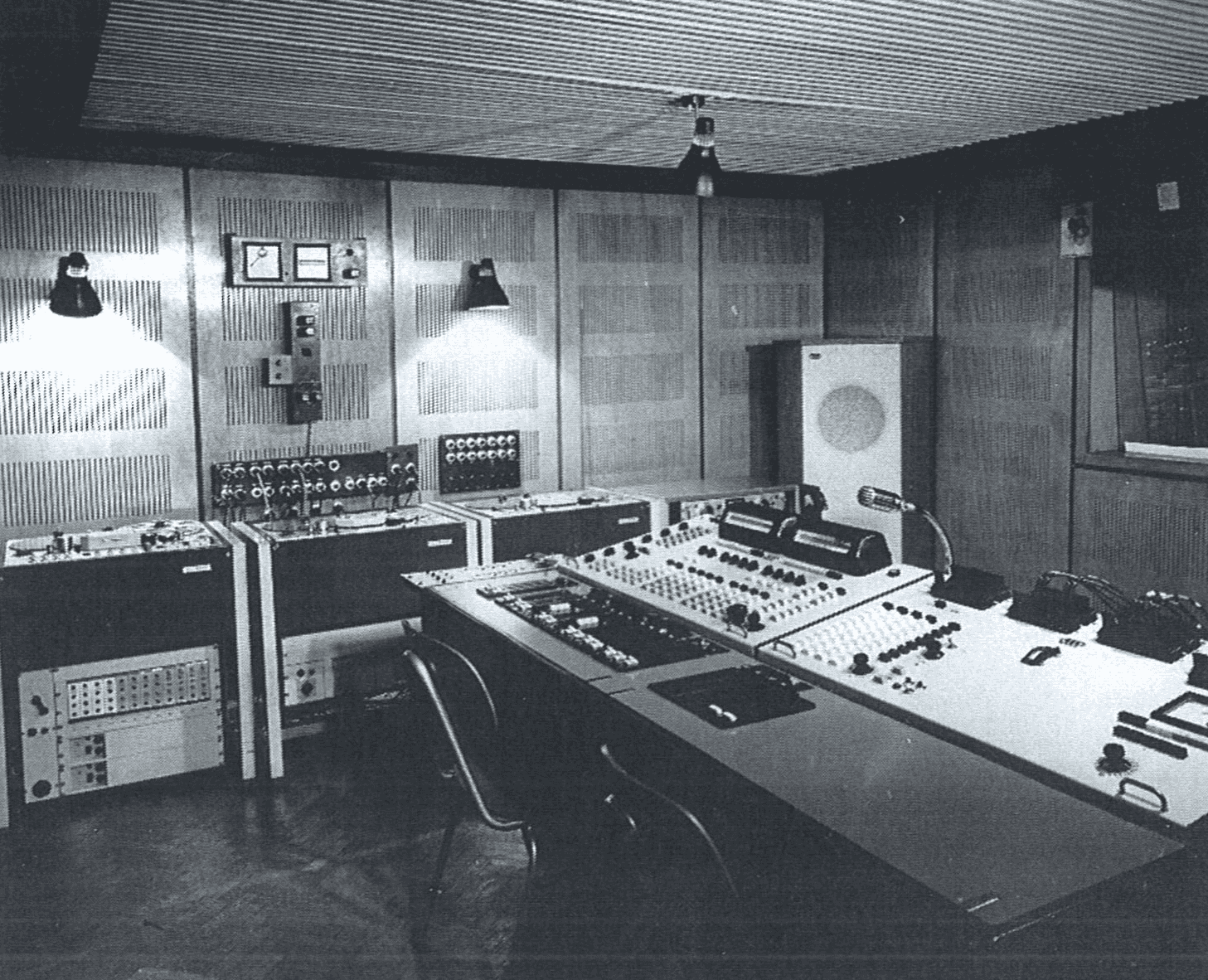 Part of the Jugoton studio set up on the Dubrava site. This specific equipment was in use between 1964 and 1975 © From the book History of Vinyl Production in Croatia by Veljko Lipovšćak - provided by Croatia Records
Part of the Jugoton studio set up on the Dubrava site. This specific equipment was in use between 1964 and 1975 © From the book History of Vinyl Production in Croatia by Veljko Lipovšćak - provided by Croatia Records
Though the music contained in Croatia Records Jugoton Funk Vol. 1 does not sound immediately like the folk and pop music we associate with the label, considering the size of the Croatia Records Jugoton archive it is perhaps less surprising that such anomalies can be found.
“Western music always had a strong appeal in Yugoslavia,” says Dr. Smeđi Šećer. “At the beginning of the communist regime, there was a strong implementation of censorship. But, in the 1960s the (communist) party seemed to relax and allow some western influences through. From this decade, a lot of cover versions of western artists started to be recorded by Yugoslavian singers. Yugoslavian labels would officially license western music and release it here. For instance, you can find releases by Ray Charles on the PGP-RTB label out of Belgrade from the early 1960s. All of this started to influence the music made here. Arsen Dedić, for example, recorded the first Yugoslavian bossa nova record in 1963.”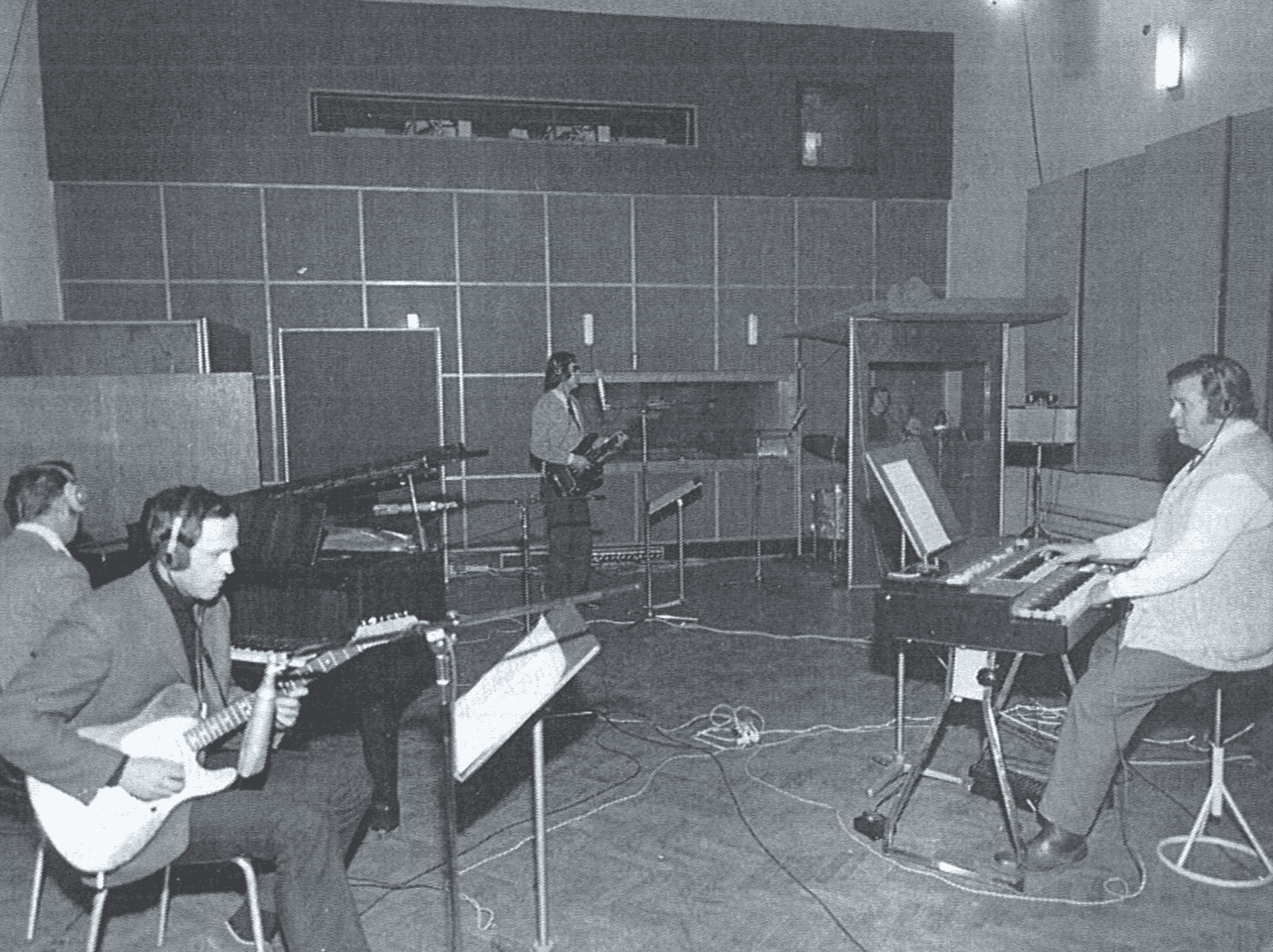 Zagreb musicians pictured at the small sound hall at Jadran film © From the book History of Vinyl Production in Croatia by Veljko Lipovšćak - provided by Croatia Records
Zagreb musicians pictured at the small sound hall at Jadran film © From the book History of Vinyl Production in Croatia by Veljko Lipovšćak - provided by Croatia Records
“The funk sound from here can be really interesting - quite unique. While some bands did try to record this black American music in exactly the style as the Americans did it, many artists from here enjoyed experimenting with the style - in particular some pop artists and progressive rock bands. They took the rhythm and the funk from the American music, but added their own styles – sometimes distinctly Balkan styles – over the top. Boki Milošević and the Belgrade Jazz Orchestra spring to mind immediately.”
Zdravko Čolić - Mujo kuje konja po mjesecu
A giant of Yugoslavian music, Zdravko Čolić's inclusion on Croatia Records Jugoton Funk Vol. 1 is one of the most unusual (and rarest) pieces of music in his back catalogue. It is a funk version of the Bosnian sevdah classic 'Mujo kuje konja po mjesecu (Mujo changes the horseshoe by the moonlight)'. “This is from an extremely rare compilation of pop festival music,” says Dr. Smeđi Šećer. “It's not something you'd come across every day. It was shown to me by a Slovenian DJ colleague. I only ever saw a physical copy of this release maybe two or three times in all my years spent digging.”
The world's largest exporter of music is the United States. The second-largest is the United Kingdom. That these two largest exporters share a common language – and it being one of the world's most widely spoken – is no coincidence. It can be difficult to export music from Croatia and other Balkan nations purely because of the language barrier. People like to understand the text of what they are listening to. Such barriers can be overcome with overtly emotional delivery, such as in the case of folk music like sevdah, but also when the musical style is something relevant to the dancefloor. Especially within a niche international scene like rare funk.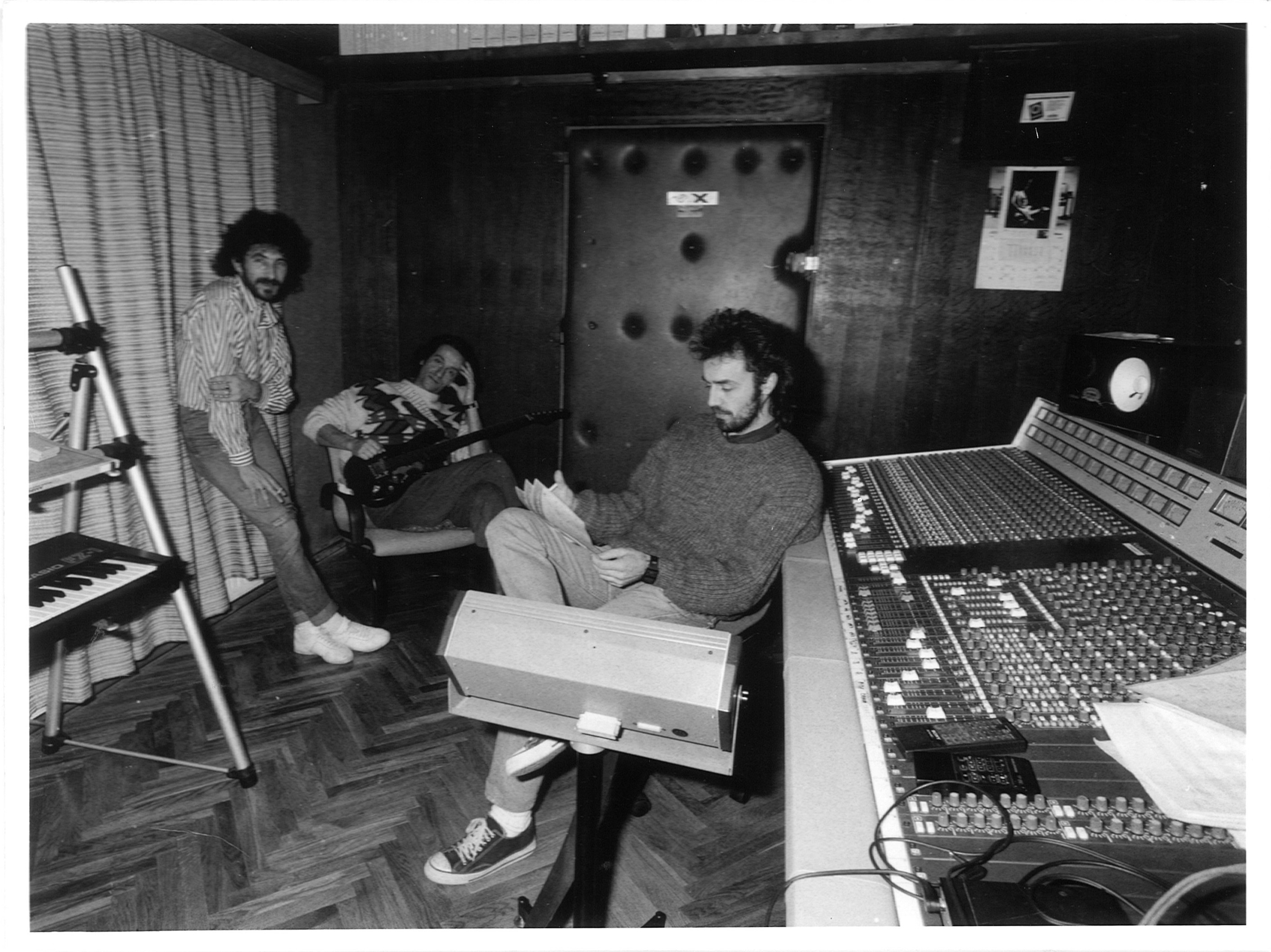 Even after the label stopped being Jugoton and became Croatia Records, famous artists from all the former countries of Yugoslavia would still come to work at the recording studios in Dubrava. In this photo from the early 1990s we see (left to right) Croatian singer Željko Bebek from the Sarajevo-formed Yugoslavian rock giants Bijelo Dugme, Macedonian guitar virtuoso Vlatko Stefanovski from the band Leb i sol and Bosnian singer, guitarist, arranger and producer Nikša Bratoš from the band Crvena Jabuka. Bijelo Dugme was the most popular and best-selling rock band from Yugoslavia. Their first recordings were offered to record label Diskoton in their native Sarajevo. They were turned down, allegedly as the label's release schedule was already full for the following six months. This is widely considered the greatest business mistake in the history of Yugoslav record publishing. On the same day as this refusal, Zagreb's Jugoton snapped the band up for an initial five-year contract © Photo from the Croatia Records archive and licensed for exclusive use within this article by Croatia Records
Even after the label stopped being Jugoton and became Croatia Records, famous artists from all the former countries of Yugoslavia would still come to work at the recording studios in Dubrava. In this photo from the early 1990s we see (left to right) Croatian singer Željko Bebek from the Sarajevo-formed Yugoslavian rock giants Bijelo Dugme, Macedonian guitar virtuoso Vlatko Stefanovski from the band Leb i sol and Bosnian singer, guitarist, arranger and producer Nikša Bratoš from the band Crvena Jabuka. Bijelo Dugme was the most popular and best-selling rock band from Yugoslavia. Their first recordings were offered to record label Diskoton in their native Sarajevo. They were turned down, allegedly as the label's release schedule was already full for the following six months. This is widely considered the greatest business mistake in the history of Yugoslav record publishing. On the same day as this refusal, Zagreb's Jugoton snapped the band up for an initial five-year contract © Photo from the Croatia Records archive and licensed for exclusive use within this article by Croatia Records
“Quite a few of these records are well known among connoisseur collectors outside of ex-Yu countries and they have a high price,” says Dr. Smeđi Šećer. “You can find Yugoslavian funk included on mixtapes by rare funk and hip hop collector DJs from all over the world. I know of one mixtape made by a well-known DJ from New York which uses only music released in the former Yugoslavia. And why shouldn't that be the case? This is the era we live in. You can go out in Zagreb and hear a Croatian DJ play Peruvian psychedelic cumbia music or afrofunk, so there are definitely DJs in the UK, the USA - maybe even Peru - who will play Yugoslavian funk. It's just feel-good dancefloor music that transcends all boundaries.”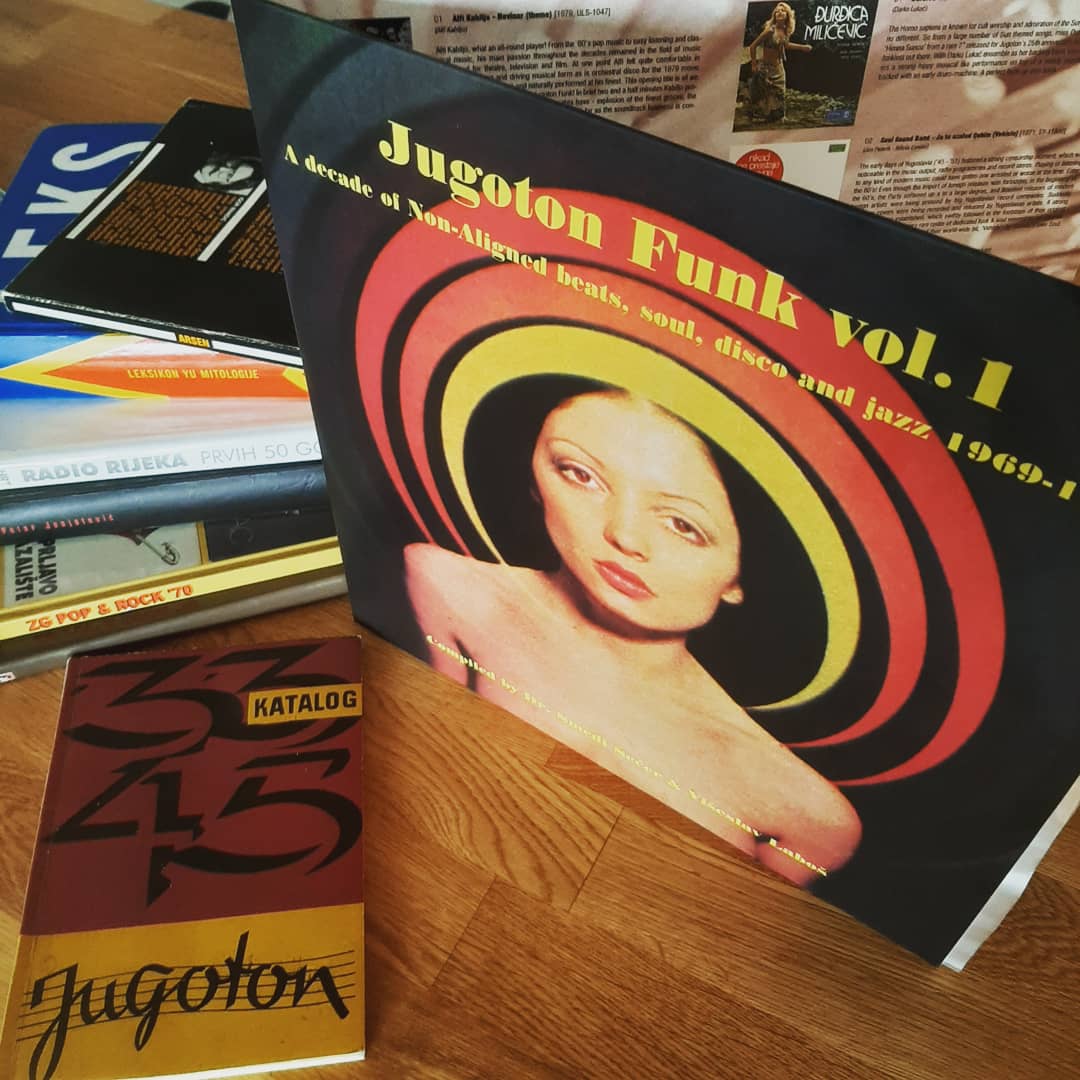
The digital and CD version of Croatia Records Jugoton Funk Vol. will be released shortly by Croatia Records. The extravagantly designed double vinyl album version is out now and was released under license by specialist Dutch vinyl company Everland Music. The last vinyl album produced by Jugoton’s vinyl pressing plant in Croatia was a disc containing the sermons of Pope John Paul II
For the latest travel info, bookmark our main travel info article, which is updated daily.
Read the Croatian Travel Update in your language - now available in 24 languages.
Croatia Diva Lisac Releases Statement From Seclusion: Impersonators Emerge
After two days of relentless press coverage, Croatia diva Josipa Lisac has gone into seclusion after releasing a statement that she would no longer comment on her unforgettable interpretation of “Lijepa nasa domovina”, the Croatian national anthem at the inauguration of Zoran Milanović.
She also declined to comment on the recent criminal charges filed against her for allegedly violating the reputation of Croatia through her interpretation of the national anthem. While the inauguration of Croatia’s fifth president has been nearly forgotten, Lisac’s otherworldly interpretation of the hymn has taken on a life of its own.
Croatia Diva’s Male Admirers Post Impersonation Videos
Some of Josipa Lisac’s male admirers, seeing an opportunity, are emerging with interpretations of the icon’s performance, which they are posting on social media.
Marin the Unknown
DARE TV | Impersonation begins at 0:20
Lisac Releases Statement Through Union and Record Company
Here is a translation of the Josipa Lisac’s statement, released by the HGU (Croatia Musician’s Union) and Croatia Records, which appeared today on her Instagram and Facebook accounts:
“By this statement, we are appealing to all media and debate participants on social networks, who have been relentlessly discussing the national anthem and the performance of the celebrated music giant, Ms. Josipa Lisac, for two days now. Unfortunately, this is a complete disregard for the artistic freedom and creation of a musician whose style is adored by every generation and seen as one of the greatest legends of our domestic music scene. It is clear to every well-intentioned person that this is not a matter of insulting the national anthem. Ms. Josipa Lisac’s style and way of interpreting (music) is widely known, and this situation is further proof that we live in a society where basic human and cultural values are on shaky ground, as is our manner of communication.
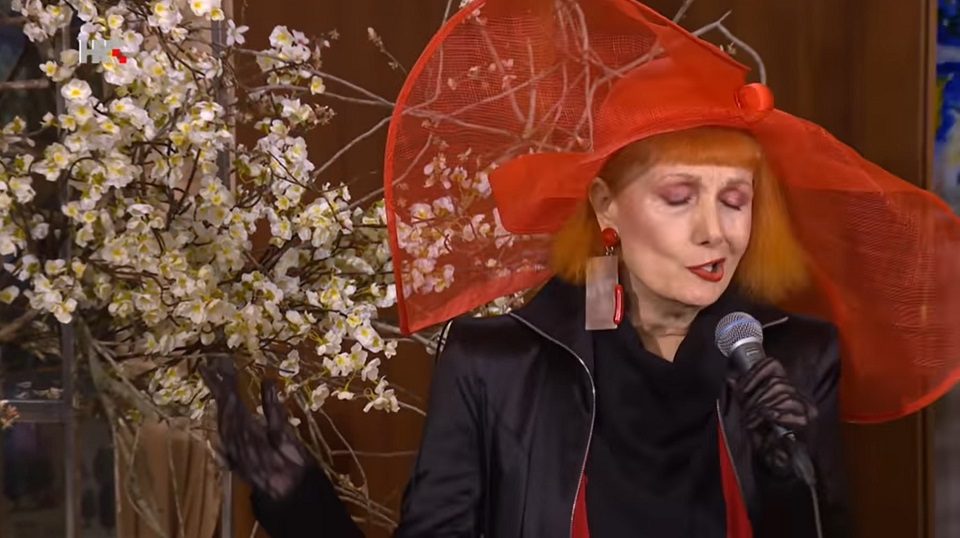
Lisac: No Comment on Inauguration Performance Reactions
At the request of Ms. Josip Lisac, we would like to inform you that she will no longer comment on reactions to her performance of the Republic of Croatia's national anthem at the inauguration of President Zoran Milanović.
Nor will she comment on criminal charges or any similar forthcoming reactions from individuals, associations or institutions, regardless of the medium in question. The past couple of days have been extremely demanding on her, so please keep her privacy in mind, especially since she has always cooperated with the media. She appreciates the support and the fact that the media have conveyed to everyone a real picture of the current state of our society through their reporting.
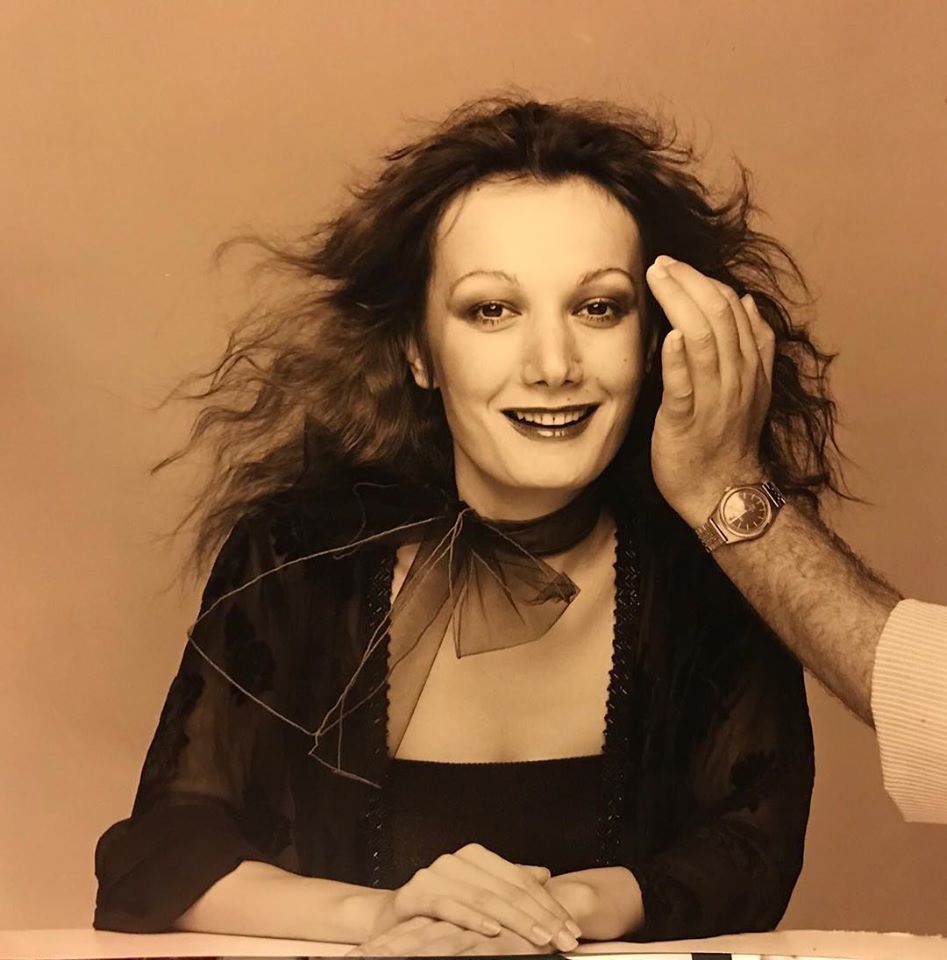
Award Winning Musician Will Receive Porin Lifetime Achievement
Josipa Lisac, recently turned seventy years of age, and in her 53 years in the industry, has recorded many exceptional pieces of music, for which she is still revered at her numerous concerts. She is also one of the most award-winning musicians of all time and has won as many as twenty-two Porins for her achievements along with her associates. This year at the Porin ceremony in Rijeka on March 27; the Board of Directors will award her a Porin for her lifetime achievement.
Josipa Lisac is a truly unique figure on the Croatian music scene, and a musician worthy of respect and admiration.
"It's all music, and music it is, or it is not."
Josipa Lisac
Statement signed by Želimir Babogredac, Director of Croatia Records and Nikša Bratoš, President of HGU.
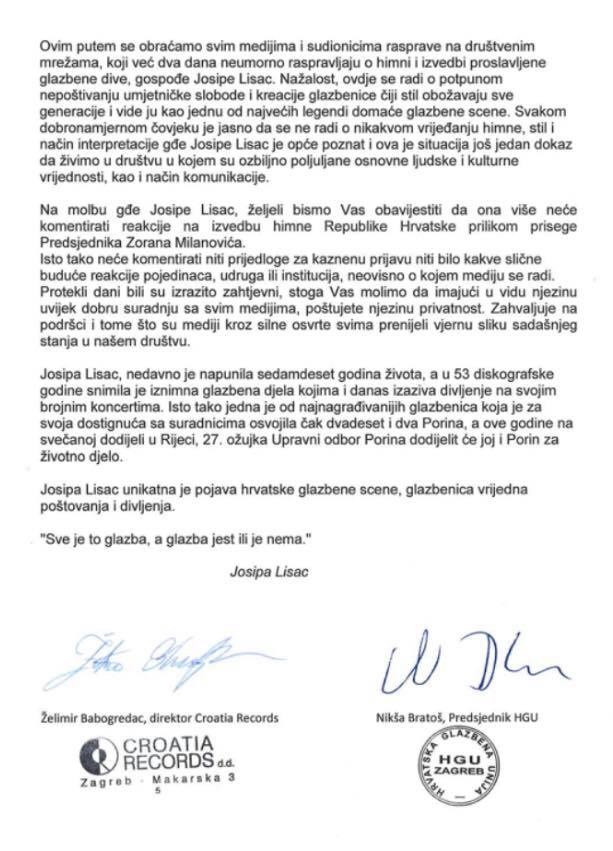
Follow updates on reactions to Josipa Lisac’s unforgettable performance and the pending criminal charges against her here.
Croatia National Anthem Fail? Criminal Charges Filed Against Josipa Lisac
Attorney Boško Županović has submitted a criminal complaint against Croatian diva Josipa Lisac for performing and intoning the national anthem of Croatia in a derogatory way during the inauguration of President Zoran Milanovic on February 18, 2020.
Criminal Complaint Filed at Zagreb State Attorney’s Office
Yesterday Županović submitted his complaint against the beloved diva and gay icon to the Criminal Division of the Zagreb County State's Attorney's Office for the criminal offense referred to in Article 349 of the Criminal Code, which pertains to the reputation of Croatia.
His criminal complaint against Josipa Lisac is translated below in its entirety:
Pursuant to Article 204, Page 1 of the Criminal Procedure Code, I submit a:
Criminal Complaint
Against: Josipa Lisac from Zagreb, born 02/14/1950, residing in Zagreb.
It is requested that the suspect's other personal information be accessed through research within the operational records of Croatia MUP.
For: Committing a criminal offense referred to in Article 349 of the Criminal Code.
On the date of February 18, 2020; during the inauguration of the President of the Republic of Croatia, she (Josipa Lisac) publicly performed and intoned the national anthem of the Republic of Croatia, in a mocking and derogatory manner, thereby fulfilling all the essential components of the criminal section pertaining to the violation of the reputation of the Republic of Croatia, which is described in more detail in Article 349 of the Criminal Code of the Republic of Croatia.
Explanation
In performing her intonation of the national anthem, the suspect used mocking articulations and tonalities which, despite her peculiar musical oeuvre and expression, were not socially acceptable. And as a person whose native language is Croatian, she had to know that this form of intonation in the Croatian language and culture is always used in forms of public mockery or disparaging imitation of someone’s statement, recitation or musical or compositional expression.
I believe that no citizen, whether it is a music artist or anyone else, has the right, tonally, vocally, or through gestures; to manifestly diminish the gravity, seriousness and significance of the intonation of the national anthem or the textual and musical structure of the national anthem. I maintain that any artistic penetration into the composition, text and musical structure of the national anthem is prohibited. Such a modification or personalization may be tolerated for other musical expressions, with the consent of the author but not with national anthems. The way in which the suspect did so during her intonation is absolutely mocking and disparaging. Therefore, I believe that the suspicion of the alleged criminal offense arose from the same.
In terms of evidence, I propose a recording of the public intonation of the national anthem, which was performed in the office of the President of the Republic of Croatia, during the inauguration of the President on February 18, 2020.
For the above, I propose that you conduct the necessary inquiries against the indicted suspect in the indictment.
In Opatija, February 19, 2020
Boško Županović, Magister Juris
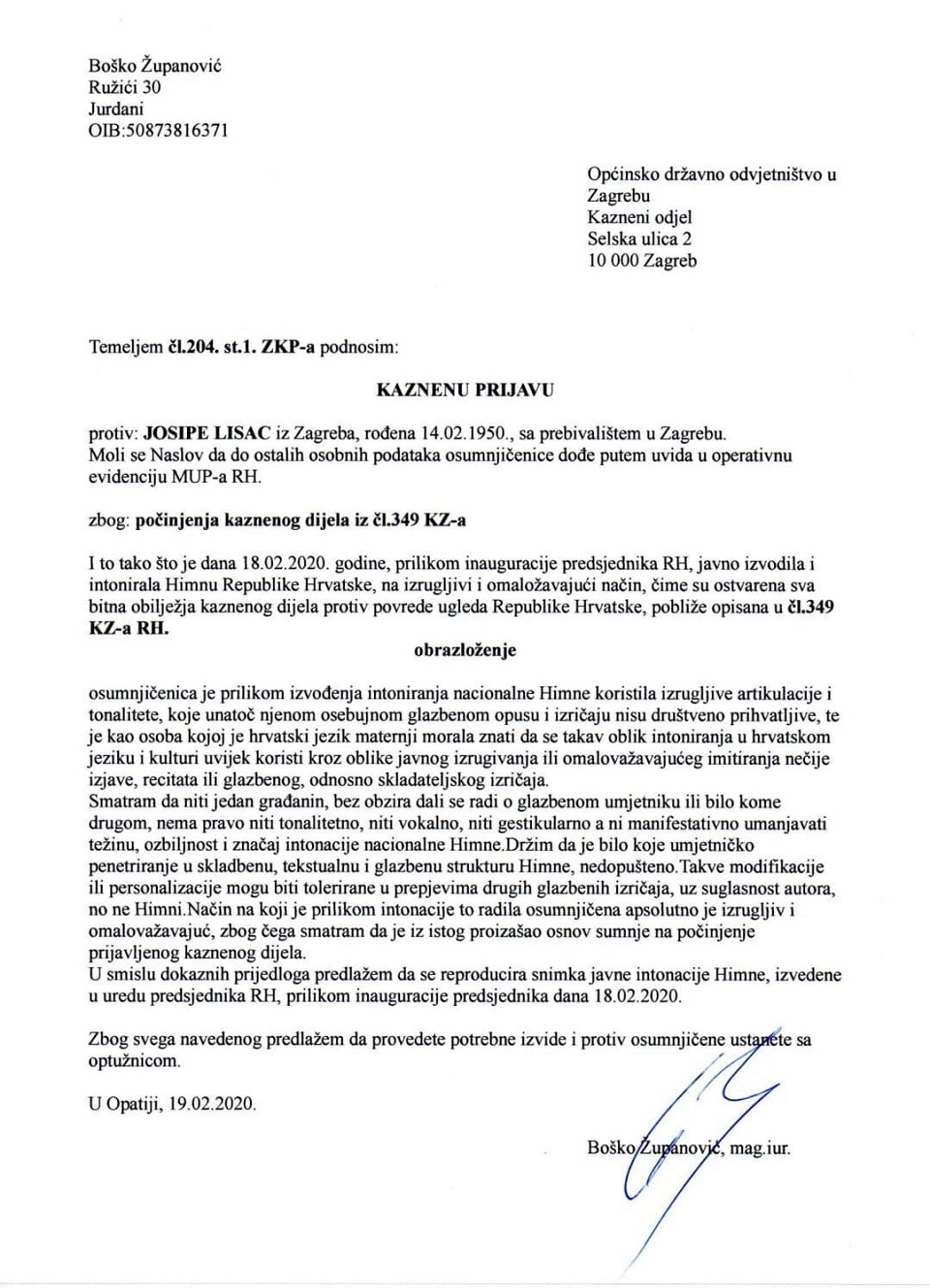
Županović Complaint Based on Opinion, Not Musical Background
Županović told Dragan Miljaš/Dalmatinski portal on February 19, 2020 that he is a law graduate and that does not have any specific musical background by which to evaluate Josipa Lisac’s performance from a professional standpoint.
“This is my opinion. Her performance was disgusting and disdainful. Our national anthem is particularly beautiful and patriotic and sends a wonderful and clear message. No one should be allowed to manipulate our national anthem. I have nothing against Josipa Lisac or against Zoran Milanović for that matter. Let him be President to all citizens, as he announced, and let her continue her singing, which will surely continue to garner varied reactions. However, I do not believe that anyone should intone and perform the national anthem of my country in that manner."
Croatia Attorney Expected Josipa Lisac to 'Howl'
"This is especially important since it happened at a public event, the inauguration of the President of Croatia, which was covered extensively by the media. I expected her to howl, but something like this…it was a form of ridicule in the worst possible way. I was deeply ashamed of being Croatian yesterday,” Županović insisted. He revealed that he does not expect anything to come of his complaint.
"This (complaint) will likely go to some music experts, and a crow doesn’t dig out its own eyes, so I don’t believe that anyone would dare say anything against her," Županović added.
Article 349 of the Criminal Code states that anyone who publicly scoffs, despises or grossly belittles the Republic of Croatia, its flag, coat of arms or anthem will be punished by imprisonment for a term not exceeding one year.
Županović Not Seeking Media Attention, Faced Criminal Charges
"Look, I’m not seeking media attention. I did it as a lawyer and a proud citizen. I think it is just plain mockery and is not fitting of any event, let alone the inauguration of an elected Croatian president. I used my own time to write this application because I consider it to be my civic duty. I sent this criminal complaint to the institutions in charge, so they can do their job," Županović elaborated in a separate interview with Davor Tomšić/Index on February 19, 2020.
Index also reviewed Boško Županović’s background and discovered that he has faced criminal charges of his own.
In 2016, he sued an activist in Rijeka, who accused him of collecting 66 criminal charges by the age of 25. In 2009, Županović was tried for two frauds and payment of counterfeit money.
"I wouldn’t be indulging in this kind of speculation if I were you. I am not a convicted person. You know what criminal charges are. I have filed charges against Josipa Lisac so we will see. I am a non-convicted person, and these are just insinuations," he pointed out to Index.
Županović’s name is mentioned in association with ten companies, five of which are active. He claims to own the portal Liburnija.
"I have been in the real estate investment business for two decades. For the past two years I have been the sports director of a club in Koper, Slovenia,” he added.

Boško Županović and Friends | Facebook
Pictures with Brothers Mamić and Grabar-Kitarović
According to his Facebook profile, Županović doesn't always run in the company of law-abiding citizens either. He has welcomed pictures with Croatian justice fugitive Zdravko Mamić, his brother Zoran, and former Croatian President Kolinda Grabar-Kitarović.
Diva Lisac After Performance: "I had to get up early. Normally, I sleep until 11:00!"
Lisac's performance gets mixed reviews from Croatian citizens.
Follow our Politics page for updates on Županović’s criminal complaint against the Croatian diva Josipa Lisac.
Croatia President Milanovic Inauguration: Gay Icon Eclipses Modest Event
The conversation with my Uber driver took a familiar turn once he detected my American accent. I was on my way to the inauguration of Zoran Milanović, the fifth president of Croatia. It was my first presidential inauguration.
Of course, he wanted to know what I thought about living in Croatia and my answer was typically positive. But, it’s too bad so many people are leaving. He had traveled the world in his former profession, and assured me that new people, immigrants, would take their place and the country would be even better because of it. Croatia could benefit from some diversity, he suggested.
Uber Driver: Someday Croatia Will Be Like Poland
We agreed that, perhaps, one day Croatia would be more like Poland. In the years following their entry into the EU, hundreds of thousands of Poles left their homeland for more financially rewarding jobs in Western Europe. In the meantime, the Polish economy has strengthened, and people are coming back.
I had applied in advance to attend the event at Pantovčak, the home of the Croatian president. The driver dropped me off at the bottom of a gated sloped lot manned by imposing Croatian servicemen in camouflage uniforms and red berets. One kindly directed me to stand under the eave so as not to get wet, as there was a light drizzle, while they verified my name on the attendance list. Within minutes, I had boarded a blue van with three other journalists which drove us down a winding road into a wooded gulley.
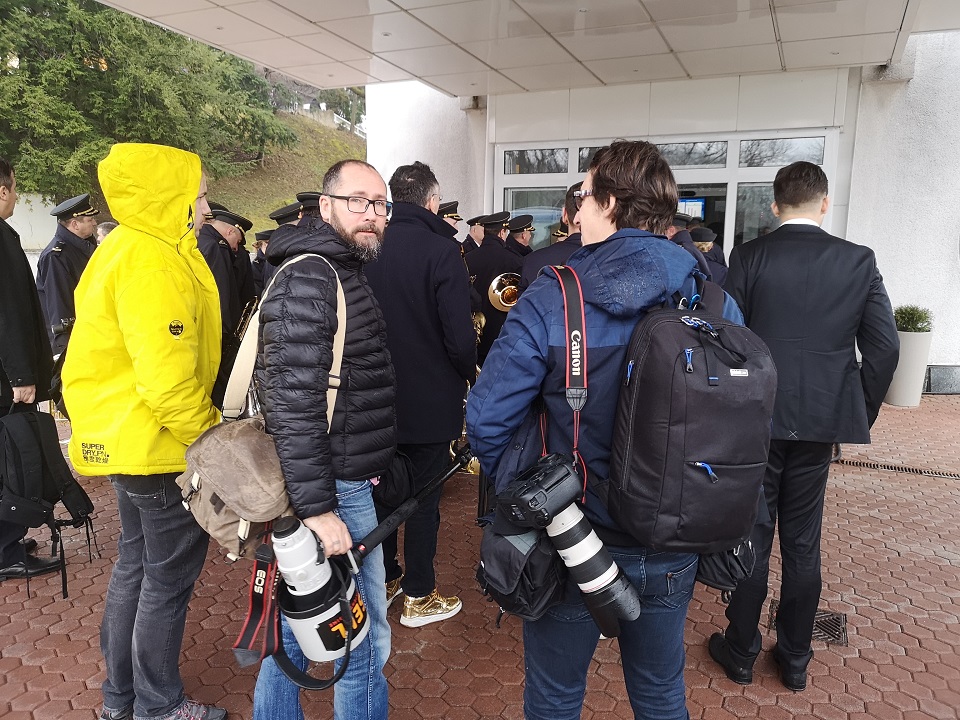
Security check line at the entrance of Pantovčak, the Croatian presidential home.
There were about 30 military band members and press waiting at the entrance to pass through security, which went rather quickly, much like the pre-check line at a US airport. Then we proceeded up a few flights of outdoor stairs to another heavily windowed thick modern building. Several TV journalists were set up in the first room, which featured a dramatic curved staircase. The second room, where the inauguration would take place, had a few dozen chairs. Clearly, we could not all fit into that room. I followed the line of journalists into a third room, with several large round tables and long table where reporters had staked out space for laptops.
Go to Pantovčak, Watch Live Inauguration on TV Monitors
There were two TV monitors. Those were for us, I concluded disappointedly, and wondered why I was even there. I’d have had better views watching TV from home. There were a few familiar faces: a reporter for a left-leaning portal wore a dashing suit with a silk patterned neck scarf which puffed out of his unbuttoned shirt, resembling a Southern Italian tycoon. And I didn’t realize that one correspondent from a popular news channel was so incredibly tall.
Paul Bradbury, Total Croatia News Editor-in-Chief and my boss, arrived separately, and texted that he had made the 11:00 deadline to get in. Whew. Shortly thereafter, the security officer alerted us that the door to our room would be closed until the end of the event. There were a couple of trays of Turkish coffee in cups with a pitcher of milk and packets of sugar. Those went fast. There were no bathrooms.
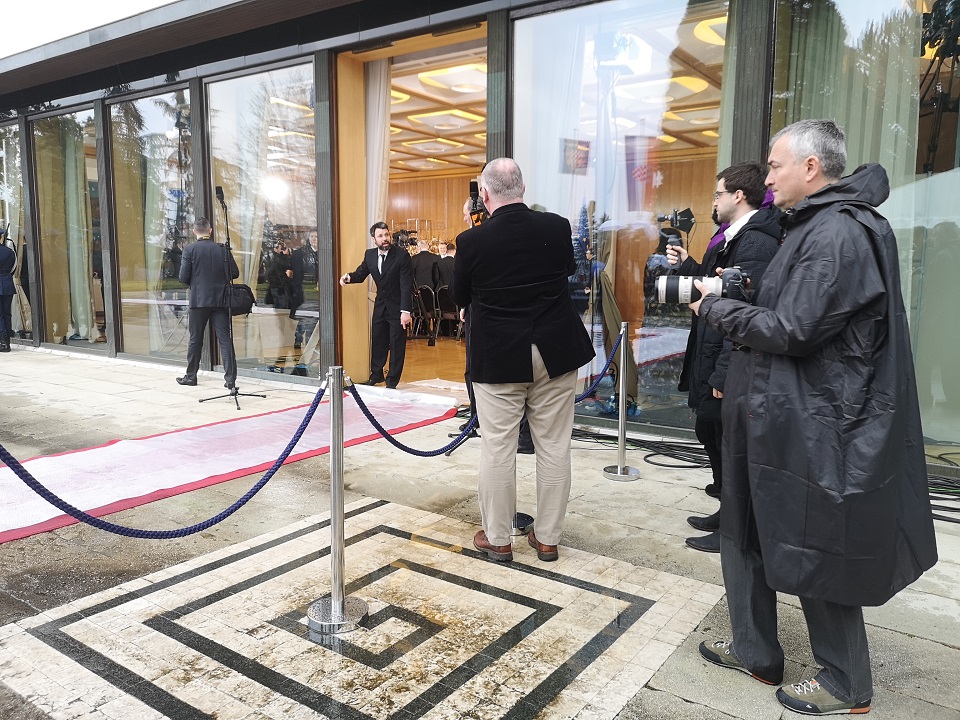
Paul getting shots of the inauguration room. That's as close as we could get.
Once Paul arrived, we headed outside to take pictures of the virtually empty terrace in the drizzle. There was a raised platform for selected TV networks, which provided a direct view of the inauguration room, through the floor to ceiling windows. That overlooked an L-shaped red carpet covered by clear plastic. To the left of the platform was a canopy for the small band to play. For whom, I wondered as I scanned the empty wet cement.
Respect for Space and Photo Views Among Journalists
Audis began pulling up alongside the vast cement terrace, and word passed around that soon-to-be former President Kolinda Grabar Kitarović was in one of them. I was pleasantly surprised at how respectful fellow journalists were of everyone’s space. I lost count of the number of times my counterparts turned around to confirm that they were not blocking my view…me with my Android. And it seemed that once I had staked out a place to take pictures, that place was mine. A photographer alerted me to move aside temporarily for a TV reporter. Once she was finished, I returned to my spot upon his encouragement. No elbowing. No clamoring. How civil.

Kolinda Grabar Kitarović entering Pantovčak for the last time as president.
Kolinda, who lost her bid for a second term, arrived looking solemn and resolved. She paused to pay respect to the troops and followed the soaked red L-carpet in spiked heels into the small enclosed ceremony space. Five years ago, by contrast, her inauguration was a major affair held in St. Mark’s Square open to the public and attended by foreign dignitaries.
The security guard herded us back inside to the press room, where we watched the rest of the brief ceremony on two monitors. I had briefed Paul about Josipa Lisac, and had been surprised to find out that she would be performing at Milanović’s swearing in – especially since he had revealed in a Nova TV debate that he was a fan of New Wave music from the early 80s.
Croatian Gay Icon Delivers Curious Rendition of National Anthem
Lisac’s presence and vocals are difficult to characterize. She turned 70 on Valentine’s Day. Since catapulting into her 40s, she has become as well-known for pushing the limits of fashion and her gravity-defying geometric fire-orange hair sculptures, as she is for her “unique” voice. She’s considered an icon in the Croatian gay male community, with one young reporter excitedly revealing in a recent interview that he aimed to impersonate his favorite diva.

Josipa Lisac in concert | Facebook
However, paying homage to Lisac would be a formidable, if not impossible, task. Most gay icons, like Cher or Liza Minnelli, leave drag queens a little material work with. Lisac, by contrast, seems committed to preemptively outdoing her prospective imitators. There simply aren’t many mannerisms or wild outfits left to accent or exaggerate.
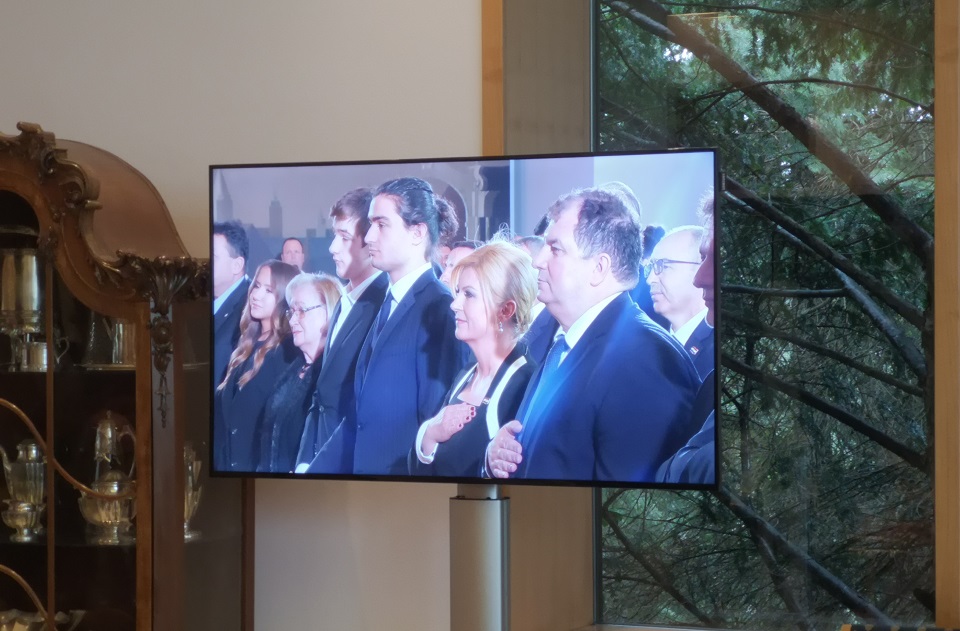
Watching reactions to Lisac's rendition of the national anthem on the TV monitor.
While loyal followers might identify with her emotive vocal gymnastics, some critics are inclined to compare her singing to a cross between Cher...and a hound, among other beings. She opened the intimate affair by performing the Croatian national anthem, and while I should have been paying respect to the land of my ancestors, I found myself marveling at Lisac’s unusual delivery and rubbery facial contortions on the TV monitor. And did anyone else see the new president close his eyes during this…rendition? Paul, in typical English fashion, is somewhat restrained in his visible reactions. But even his eyes widened through that molasses-paced otherworldly performance.
Milanović Coasts Through: Reviews Political Campaign Points
Perhaps dazed by his chosen guest’s abstract interpretation of the national hymn, the new president seemed momentarily confused about his next move. Was there something in the brown wooden box? Wait, no. After being prompted, he headed over to another table to sign a very official-looking document. His brief speech touched on familiar campaign themes: anti-corruption, quality education for all, cooperation with neighbor states, the wars are over and minority rights.
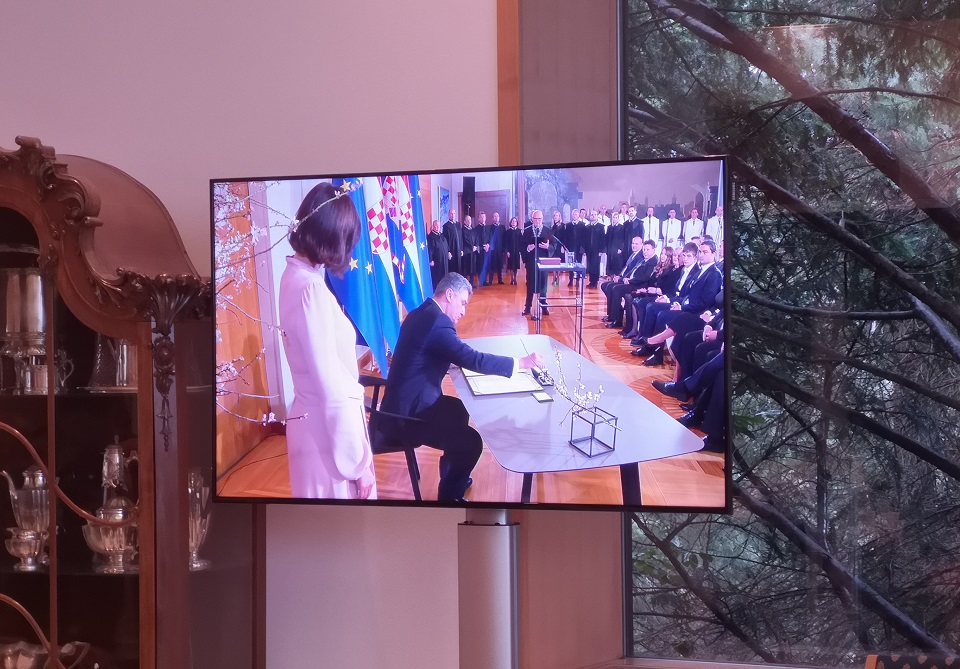
A signature makes it official. | Sanja Musić Milanović and Zoran Milanović
"Our republic needs every person and every person in Croatia must be given a chance to find their way and their place, to live in dignity from decent work. This is a home to us all, to us who live here and to the generations to come, as well as to those who are yet to return," Milanović concluded.
As we left the press room for the entry, the band played “Tvoja zemlja” (Your Country), a song which, more than any other (in my opinion), epitomizes the Croatia of yesterday and today. Admittedly, it’s the one Croatian standard that always leaves me a little misty-eyed.
"Here you will always find a home,
A heart that beats for you,
Arms that guide you,
A mother that understands you,
You will know everything you need to know.
You will know the pain of crying
When your country suffers;
But above it all
You’ll surely realize
how much this land means to you.
This is your country, here you build a home,
Here is an old foundation, here beneath your ruins.
Foreigners and storms have ripped her apart,
But she’s still here as long as we’re here.
You'll be blessed just like us.
A king who knows no crown,
But within his soul
Like everyone among us
You'll be as glorious as we are."
‘No photos past the first stair!’
The security guard corralled us through a narrow, roped corridor to the left of the curved grand staircase. Then she announced that no photos were allowed after the former and new president ascended the first stair of the long winding staircase. Everyone protested, but the cameras stopped the second the former president and her victor reached the second step. Limited photo ops ensued as other prominent figures exited the small gathering.
A small cluster of us remained reined in by a blue velvet rope. After some confusion, the security guard released us and we headed back through the entrance, where we awaited more photo ops of politicians getting into cars.
"Are you satisfied (with your performance)?" One reporter called out to Josipa Lisac as she unassumingly entered her ride. She declined to comment.
Paul looked at his phone. It was 12:53. The entire affair had lasted less than an hour. He grabbed some prime footage of Milanović and Kolinda hugging and exiting together. Then, we slowly made our way through the expansive hilly wooded grounds to the gated entrance.
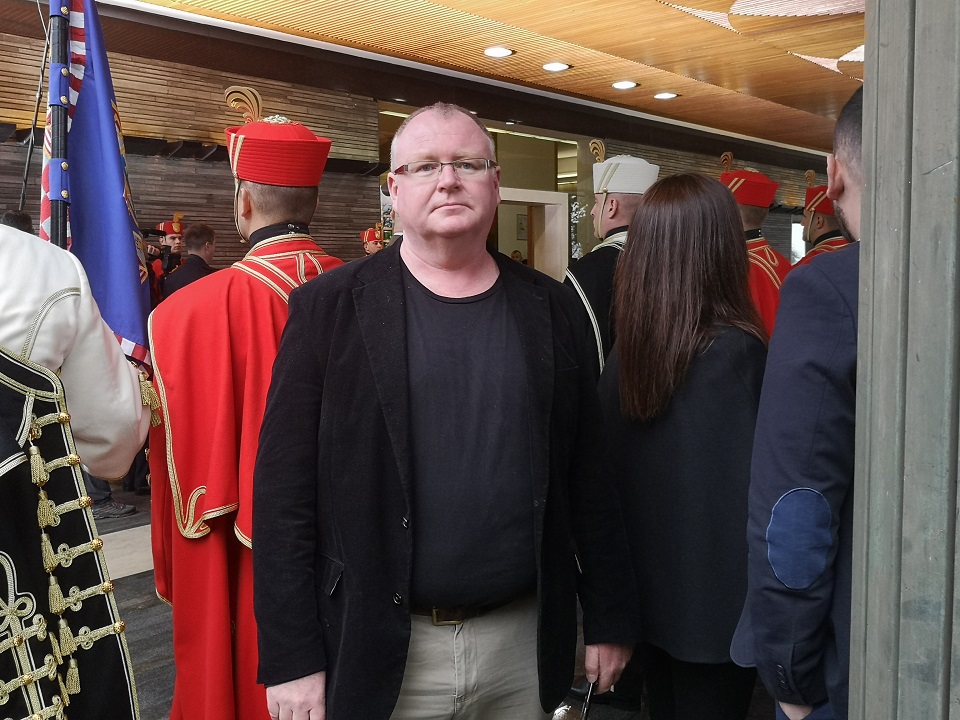
Paul at the entrance of Pantovčak, the home of the Croatian president.
According to reports, the cost of Milanović’s inauguration was one-sixth of that of his predecessor’s. For those enchanted by pomp and circumstance, it was likely a disappointment. But, like most inaugurations, it will soon be forgotten and surpassed by what the president, within the limited scope of his office, can do for the country.
Check out Paul Bradbury's account of the ceremony with some great videos here. Follow the activities of Croatia's new president on Total Croatia News here.
A Concert for A Cause: Pozitivan Returns this December
The 12th edition of the Pozitivan concert will be held on Friday, December 2 in Zagreb at Dom Sportova. This year’s concert hosts Bajaga & Instruktori, Josipa Lisac, Rundek Cargo Trio and Luce - bringing everyone together for the largest and longest-running domestic indoor concert, for a good cause.


